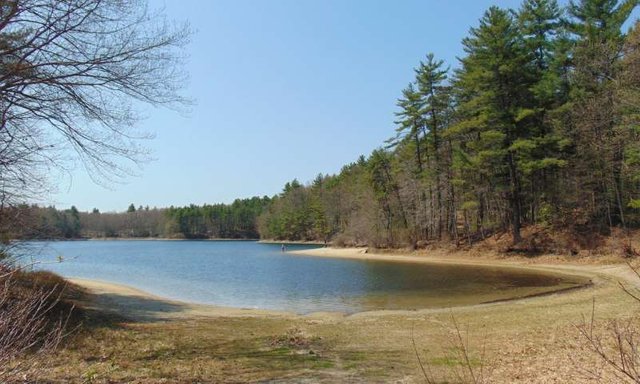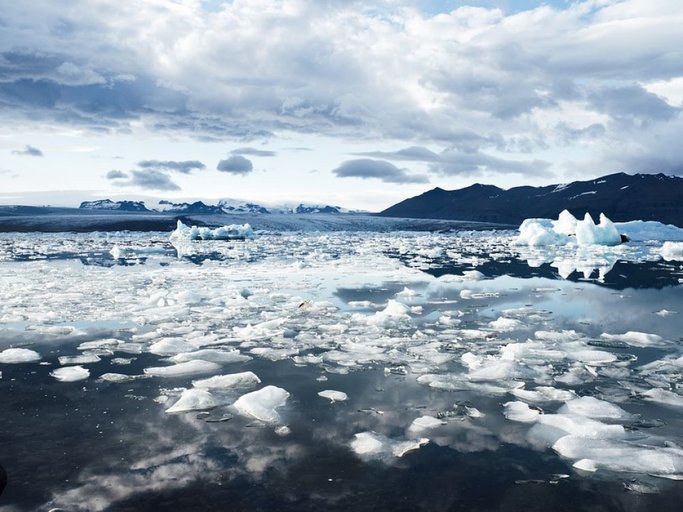Climate change and recreational activities at Walden Pond have altered its ecosystem April 4, 2018, Public Library of Science
Climate change and recreational activities at Walden Pond have altered its ecosystem
April 4, 2018, Public Library of Science

Climate change and recreational activities at Walden Pond may have drastically altered its ecosystem. Credit: Curt Stager
Climate change and recreational activity at Walden Pond may have altered the ecology of this iconic lake during the past 1800 years, affecting the water quality and plankton community, according to a study published April 4, 2018 in the open-access journal PLOS ONE by J. Curt Stager from Paul Smith's College, USA, and colleagues.
Famously known as the setting for Henry David Thoreau's Walden: or Life in the Woods, Walden Pond in Massachusetts has been a popular destination for swimmers and tourists since the early 20th century. Previous research has shown that this popularity has taken its toll on the water clarity and the overall lake ecosystem.
To better understand the long-term effects of human activity on chemical and biological conditions in Walden Pond, the authors of the present study studied six sediment cores from the bottom of the lake. They studied the remains of glassy-shelled algae preserved in the cores, since these algae require sunlight and can therefore indicate water depth and clarity. The researchers also used radio-isotopic dating to determine how old the cores were, and to document how the growth of algae in the lake has shifted over time.
The researchers found that levels of phytoplankton have increased since the 1920s, following recreational development of the shoreline. The researchers suggest that sediments running off from disturbed shorelines and a footpath to the Thoreau cabin, along with human wastes associated with swimmers, may have contributed to shifts in algal nutrient levels in the lake, allowing for certain kinds of phytoplankton to thrive and reduce the clarity of the water.
Future climate change may exacerbate such problems at Walden Pond because warmer, wetter conditions can also favor species of phytoplankton that could further cloud the waters. The researchers therefore suggest that lake managers develop plans to further reduce the flow of human-derived nutrients to the lake under the warmer, wetter conditions that most climate models project for New England during the 21st century.
Dr. Stager notes: "The sediments of Walden Pond record major ecological changes to this iconic lake since the time of Thoreau. They also warn of more changes to come in a warming future."
Source: phys.org
Don`t miss the top 10 best posts:
 Global warming: even a rise of 2 ° C has disastrous consequences -
Global warming: even a rise of 2 ° C has disastrous consequences - Gluten-free vegan shortbread IG low - Pâte brisée vegan sans gluten IG bas
Gluten-free vegan shortbread IG low - Pâte brisée vegan sans gluten IG bas Wonderful landscape with a castle in the moutains!!
Wonderful landscape with a castle in the moutains!! Kale Chip Crops, how do you succeed them every time?
Kale Chip Crops, how do you succeed them every time? Gluten-free pancakes without lactose and low GI - Crêpes sans gluten sans lactose et IG bas
Gluten-free pancakes without lactose and low GI - Crêpes sans gluten sans lactose et IG bas 3 chocolate chip vegan cookie recipes - 3 recettes de cookies vegan aux pépites de chocolat
3 chocolate chip vegan cookie recipes - 3 recettes de cookies vegan aux pépites de chocolat

This post as well as its images are released under a CC BY 4.0 License.